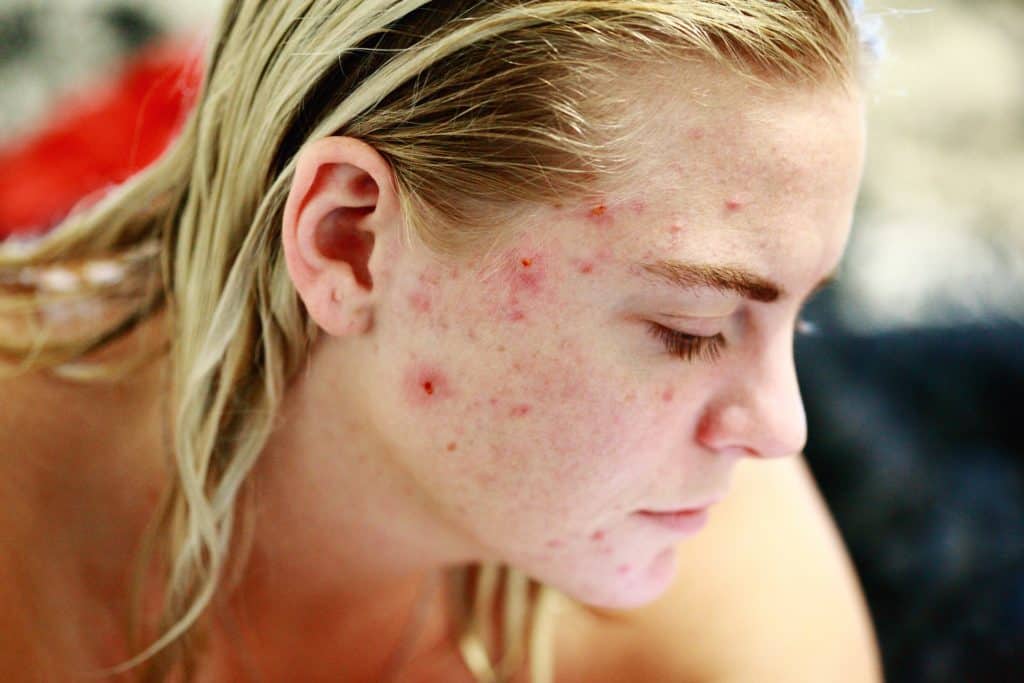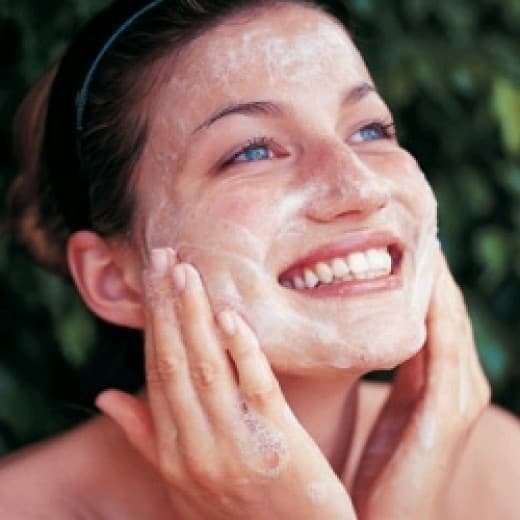Can oregano oil be used for oily skin?
I can understand many people on their “thinking caps” when they hear of using oils to help for oily skin, but they fail to have a closer look or think even broader of why it’s even possible. Let me break it for you today, oils are good for almost everything including skin conditions like acne which are even caused by oily skin.
Let’s go back and have a look at the properties of these oils and unlike other facial treatments, oils are anti-inflammatory, anti-bacterial, anti-oxidants and many other skin-loving ingredients. So, yes, essential oils can be used to fight against oily skin.
Essential oils are packed with rich vitamins and many other ingredients which are highly essential for skin protection and healing, and above all hydrate and regulate the production of oils necessary for our skin (1).
There is one reason why those other chemical infused and harsh products which many people today use for their oily skin will only cause more harm than good.
wait for it…
These products flooding the market will only remove all the oils from the skin, even below the required level of oil for the skin and our system will react to this by over-producing oil to compensate for the shortage of oil by producing excess which can easily cause more congestion and eventually cause acne conditions.
Let us have a deeper understanding of oily skin conditions for the opportunity to better guide you towards taking care of your skin and prevent such complications in the future.
What is oily skin?
Oily skin is considered a common cosmetic condition that comes as a result of over-sized sebaceous glands produce an excessive amount of sebum leaving us with a greasy and shiny appearance (2). Today, oily skin is considered one of the most common dermatologic concerns, reported by a wide variety of patients, even individuals with no signs of acne but just for its characteristics of larger pores on the face and a greasy, shiny or unclean appearance (3).
Researchers are still clueless why some people are known to suffer from excessive sebum production while another majority of other people go about enduring dry skin, well, just something to think about.
Sebum is known to be a viscous fluid which is composed of wax esters, squalene, triglycerides, free fatty acids, free sterols, and cholesterol esters. The production process of sebum varies throughout the course of our life with higher levels of production at certain periods. At birth, the sebaceous glands are present and the production of sebum is relatively high at this time but decreases shortly after until puberty.
At puberty, sebum production dramatically increases and only declines after menopause for women and after 60 to 70 years of age for men (4).
The production rate of sebum among patients differs and highly variable. Not much information has been gathered to explain why some individual produces more sebum than others but some conclusions have been made. Men, for example, are known to produce higher sebum output due to higher testosterone levels. On the other hand, sebum production is known to increase during ovulation in women.
Environmental factors can also contribute to sebum production. Less sebum production is experienced in winter seasons compared to during spring and summer. In line with race, black people are characterized with enlarged pore size which can explain higher rates of sebum production compared to Chinese women with a really smaller pore size and lower density (5).
What are the causes of oily skin?
Every individual produces oil in their skin, under our pores is available a sebaceous gland that produces sebum. Sebum helps to keep our skin moisturized, hydrated, protected, and healthy. But with some others, the case is different as more sebum is produced than required which then causes oily skin (6).
Below are some of the causes of oily skin;

- Genetics; when the condition runs in the family
- Age; the production of sebum varies with age. More sebum is produced during our early ages and decreases as we grow old. The most crucial period for sebum production is seen immediately after birth and during puberty. Less sebum is experienced after menopause for women and after age 60 to 70 for men.
- The environment; the environment also plays a vital role in sebum production. People are seen to produce more sebum in hot or humid climates. More sebum production can also be seen during summer than in winter.
- Enlarge pores; As we age our pores stretch out. Also, due to weight fluctuation and previous break out, we can experience enlarged pores. With lager pores, we can produce more oil.
- Cosmetics; We turn to use the wrong skincare products and at the wrong time. Some skin care products are not to be used for certain time periods of the year. Not every skincare product can be used all year round. Some can be more efficient for our skin during the summer. While some can be better during winter. Also, some cosmetics can drastically extract all the oil from our skin causing the body to overproduce causing oily skin.
- Too much skincare routine; if we wash our face far too often we turn to wash away the excess oil and even the required oil the skin needs. This can cause the body to produce more oil to replace the shortage and eventually causing oily skin. Washing the skin twice a day can be enough to maintain the oil levels.
- Failing to moisturize the skin; many people believe moisturizers cause oily skin but that will depend on what kind of moisturizer. We definitely need a good moisturizer from preventing the skin drying out. Some moisturizers are lightweight and water-base which can be good for oily skins (7).
Some signs and symptoms
Oily skin is usually experienced on the face and can come with the following signs and symptoms;
- A greasy and shiny appearance
- Enlarged spores
- The skin may look rough and thick
- Causing occasional pimples
- Usually associated with clogged pores and blackheads (7a).
Using oregano oil for oily skin
Oregano oil has been used for countless skin conditions of which it has always come out victorious. Oregano oil can be used for anti-aging, acne (which can be caused due to oily skin), eczema, ringworm, and many others.
Oregano oil is known to be anti-inflammatory, anti-oxidant, anti-parasite, and anti-bacterial. These unique properties of oregano oil have made it a super oil for the treatment of a wide variety of skin conditions.
The fact that oregano oil is natural, and organic treatment, makes it better to be used to fight skin conditions compared to other products that are chemical-based and causing more harm to our body than good.
The best way to use oregano oil for oily skin
The best way to use oregano oil for oily skin is to mix the oil with jojoba oil. Many people may think using oils to cure oily skin can be a joke but jojoba oil is highly used to treat oily skin and many other skin conditions.
This is true because jojoba oil is great at mimicking sebum on the skin which will trick the sebaceous glands into producing less sebum and maintaining the oil levels in the long-run. This makes jojoba oil the best carrier oil to be used for oily skin (8)
Jojoba oil is known to be extremely light and the closest molecular structure compared to the natural sebum produced. Just a small amount of jojoba oil is required to do the trick.
Combining oregano oil with jojoba oil will help with its anti-inflammatory property it will easily penetrate the skin and limit the overreaction of the sebaceous gland.
Some concerns about using oregano oil
Oregano oil can be the best treatment but may not be favorable for every condition. This is because oregano can be allergic to some people. This may include people who are allergic to oils of the Lamiaceae plant family. These plants include mint, basil, marjoram, sage.
Also, people who are dealing with diabetes are advised to avoid using oregano as oregano oil can lower blood sugar levels. People who are taking anticoagulant drugs are also advised to avoid the use of oregano because oregano is known to promote the flow of blood in the system.
Pregnant and nursing mothers are advised to stay away from using oregano as oregano can cause serious issues with the fetus for pregnant ladies and limit the production of milk for nursing mothers.
How to use oregano and jojoba oil for an oily skin
To use oregano oil with jojoba oil for oily skin, we must be able to prepare a soothing mixture that can be easily applied to the affected areas through a gentle massage. You can prepare a mixture of 2-3 drops of oregano oil with a tablespoon of jojoba oil and lightly apply it to the affected areas.

You can also take oregano internally to help fight inflammation from within. You can add 2-3 drops of oregano in a glass of water or any beverage of your choice and drink orally. You can also use oregano capsules to escape the strong taste of oregano oil.
EndNote
Before using oregano oil in any way, it is important to talk with your doctor for more professional advice. Also, it is important to make sure the oil you are using is 100% organic and therapeutic grade produced by a reputable manufacturer. Oregano oil can be used for a general well-being treatment by using the oil to boost our immune system and keep all unwanted viruses and bacteria apart. Provide us with the opportunity to learn from your experience with oregano by sharing below.





0 Comments